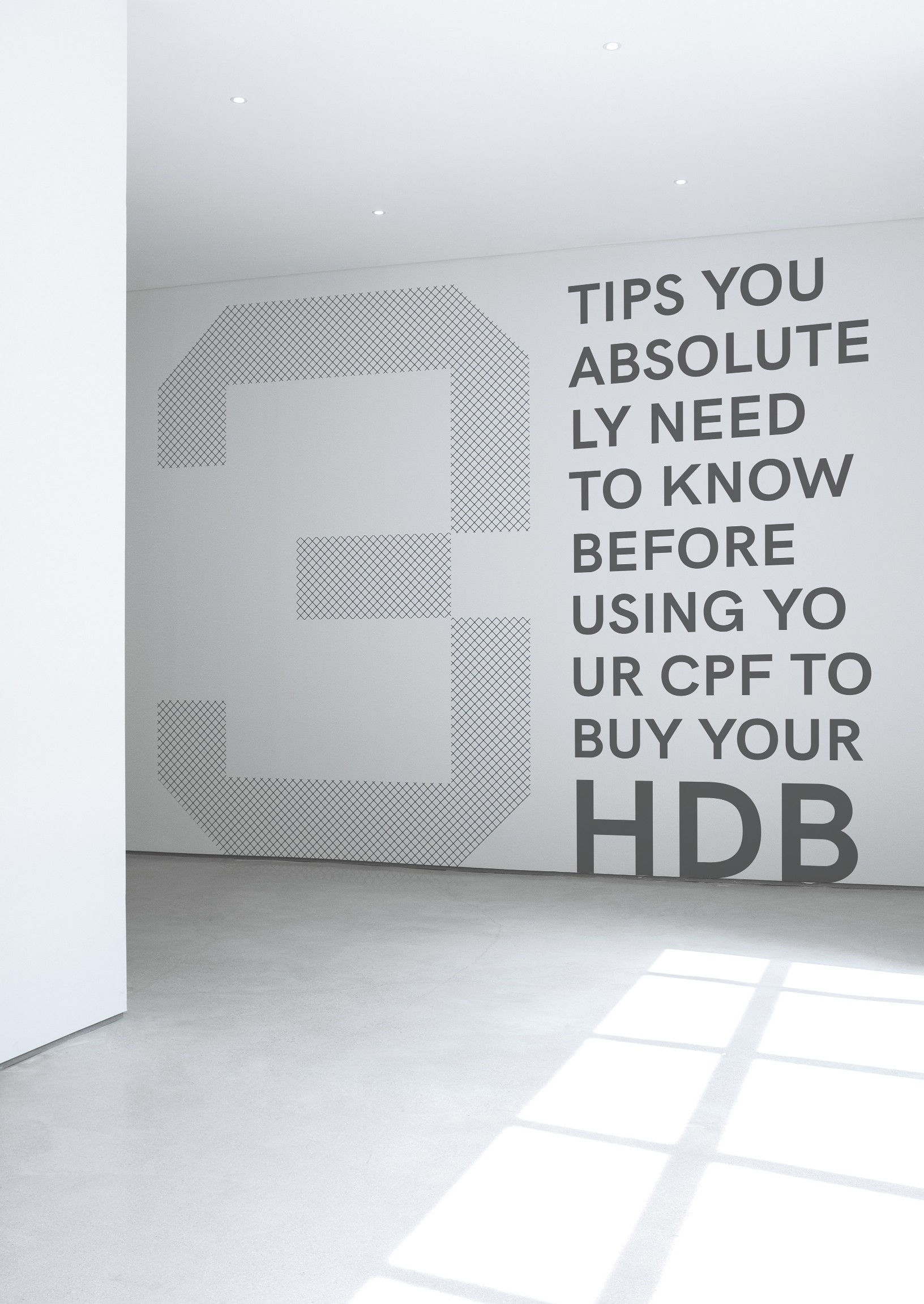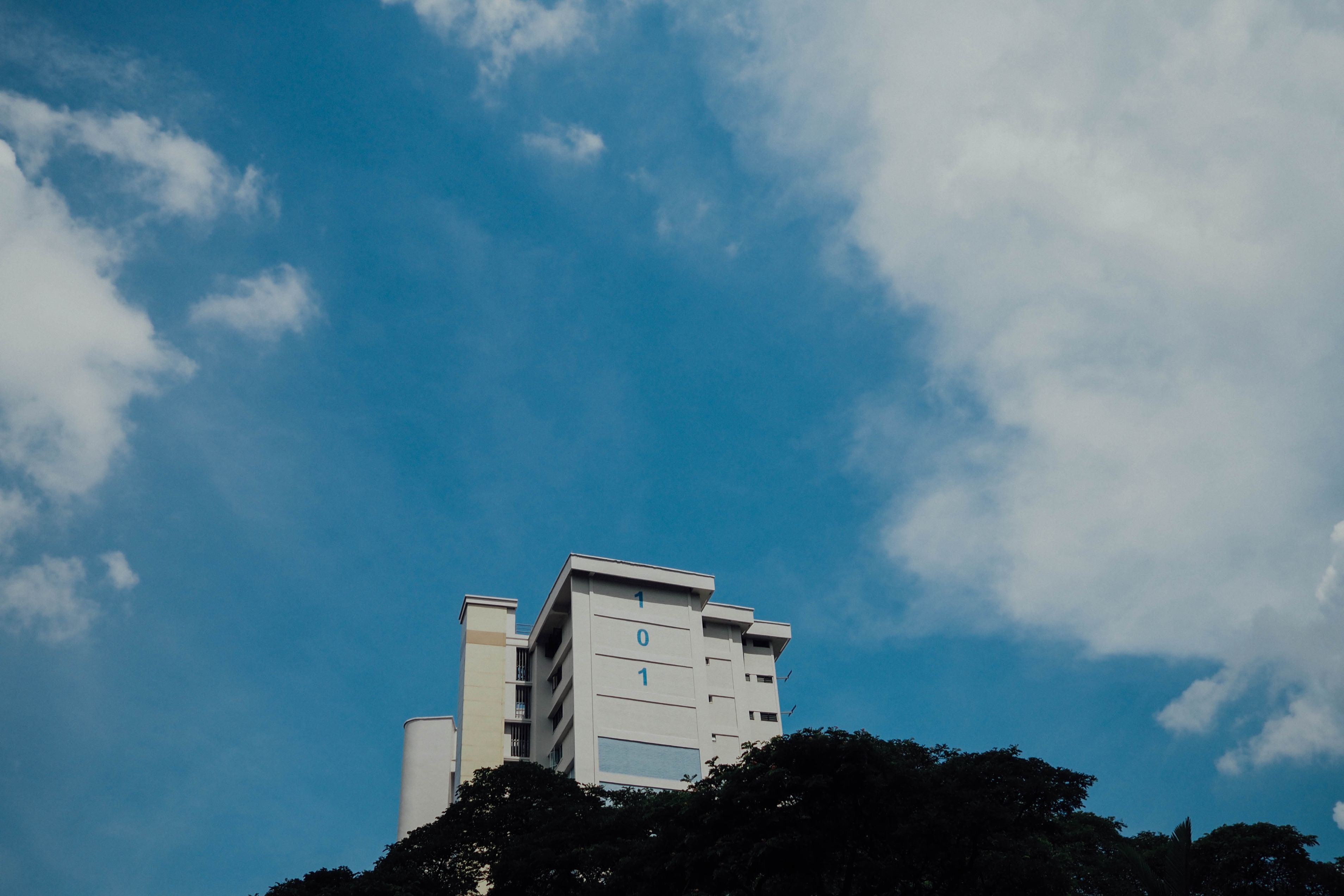3 tips you absolutely need to know before using your CPF to buy your HDB
July 28, 2017

Even though Singaporeans talk about CPF all the time whether it be their appreciation or grudges for it, it still comes to a shock to many when they discover things that were not communicated to them upon purchasing their home. Here are the 3 absolute things you need to know before you purchase your home.
Many readers write in because they're unsure what to do next, and don't know who to trust.
If this sounds familiar, we offer structured 1-to-1 consultations where we walk through your finances, goals, and market options objectively.
No obligation. Just clarity.
Learn more here.
1. You have to pay back accrued interest on your CPF housing grant
No doubt, the CPF housing grants do help to reduce the cost. But it is not a direct deduction of the price of the HDB flat, but it is credited into your CPF account and then deducted straight away. As a result, when you do sell off your flat, you will have to “pay” back the grant to your CPF account with the accrued interest.
2. You have to pay back accrued interest on your CPF money used to pay off the flat
Firstly, you will HAVE to pay back whatever that was used to pay for the flat using your CPF.
Secondly, you HAVE to pay back the accrued interest on that amount that was withdrawn. To put it simply, you are effectively borrowing from your pension fund to pay off your flat. This is because if at any point you decide to sell, you will have to pay back into your CPF account the same amount that was taken out PLUS INTEREST (2.5%). This accrued interest is what you would have earned had you not used your CPF to pay the monthly mortgage. Of course at the end of the day, it is still your money that would help towards your retirement. But many people do not like the idea of this forced savings, and that will be another story for another day.
You can view the amount that is refundable to your CPF account in your property statement here.
In general, you have to remember that your cash proceeds will never be as high as you would think. This is because after the sale of the house, the bank will be paid off first, next will be your CPF account, and finally the remaining in cash. So the longer you have used your CPF to pay off your HDB flat, the less cash proceeds you will get back when you sell it off.
However, one important point is if the sale proceeds after paying off any outstanding mortgage are lower than the sum of principal amount and accrued interest, you will not be required to top up the shortfall as long as the property is sold at or above current market value.
Lastly, if you are above 55, the CPF refund into your OA will be used to top up both your Retirement Account and Medisave Account to the latest respective minimum sums. Any excess CPF funds will be paid to you within 5 working days.

Property AdviceCPF Accrued Interest: Why You Should Not Pay For Your HDB With CPF
by Sean Goh3. You could potentially save more if you do not use your CPF to pay
Not many people can use cash to build wealth at more than 2.5% earned in CPF OA or 4% in the SA. As you would earn 2.5% interest on the monies in your CPF account, some more prudent people might look towards the long term and use cash to pay and then use their CPF as a forced savings to build up for their retirement.
For simplicity sake let us assume a monthly mortgage of $1,000.
| Person A | Person B | |
|---|---|---|
| Cash Outlay | $1,000 | $0 |
| CPF Outlay | $0 | $1,000 |
| Money in CPF OA after 20 years (@ 2.5% interest rate) | $310,975 | $0 |
Source: D&S
So over the 20-year period, Person A would have paid $240,000 in terms of mortgage (not inclusive of interest). If this amount was left in the CPF OA account, it would have garnered $310,975, an extra savings of $70,795.
However, of course this comes at the expense of flexibility. This means that if you do not manage your cash flow well, if there is an emergency or an unexpected retrenchment it could be problematic.
As usual, if this has helped you please consider sharing it! If not feel free to comment or let us know your thoughts!
At Stacked, we like to look beyond the headlines and surface-level numbers, and focus on how things play out in the real world.
If you’d like to discuss how this applies to your own circumstances, you can reach out for a one-to-one consultation here.
And if you simply have a question or want to share a thought, feel free to write to us at stories@stackedhomes.com — we read every message.
Sean Goh
Sean has a writing experience of 3 years and is currently with Stacked Homes focused on general property research, helping to pen articles focused on condos. In his free time, he enjoys photography and coffee tasting.Need help with a property decision?
Speak to our team →Read next from Property Advice

Property Advice We Can Buy Two HDBs Today — Is Waiting For An EC A Mistake?

Property Advice I’m 55, Have No Income, And Own A Fully Paid HDB Flat—Can I Still Buy Another One Before Selling?

Property Advice We’re Upgrading From A 5-Room HDB On A Single Income At 43 — Which Condo Is Safer?

Property Advice We’re In Our 50s And Own An Ageing Leasehold Condo And HDB Flat: Is Keeping Both A Mistake?
Latest Posts

Singapore Property News Why Some Singaporean Parents Are Considering Selling Their Flats — For Their Children’s Sake

Pro River Modern Starts From $1.548M For A Two-Bedder — How Its Pricing Compares In River Valley

New Launch Condo Reviews River Modern Condo Review: A River-facing New Launch with Direct Access to Great World MRT Station



































0 Comments